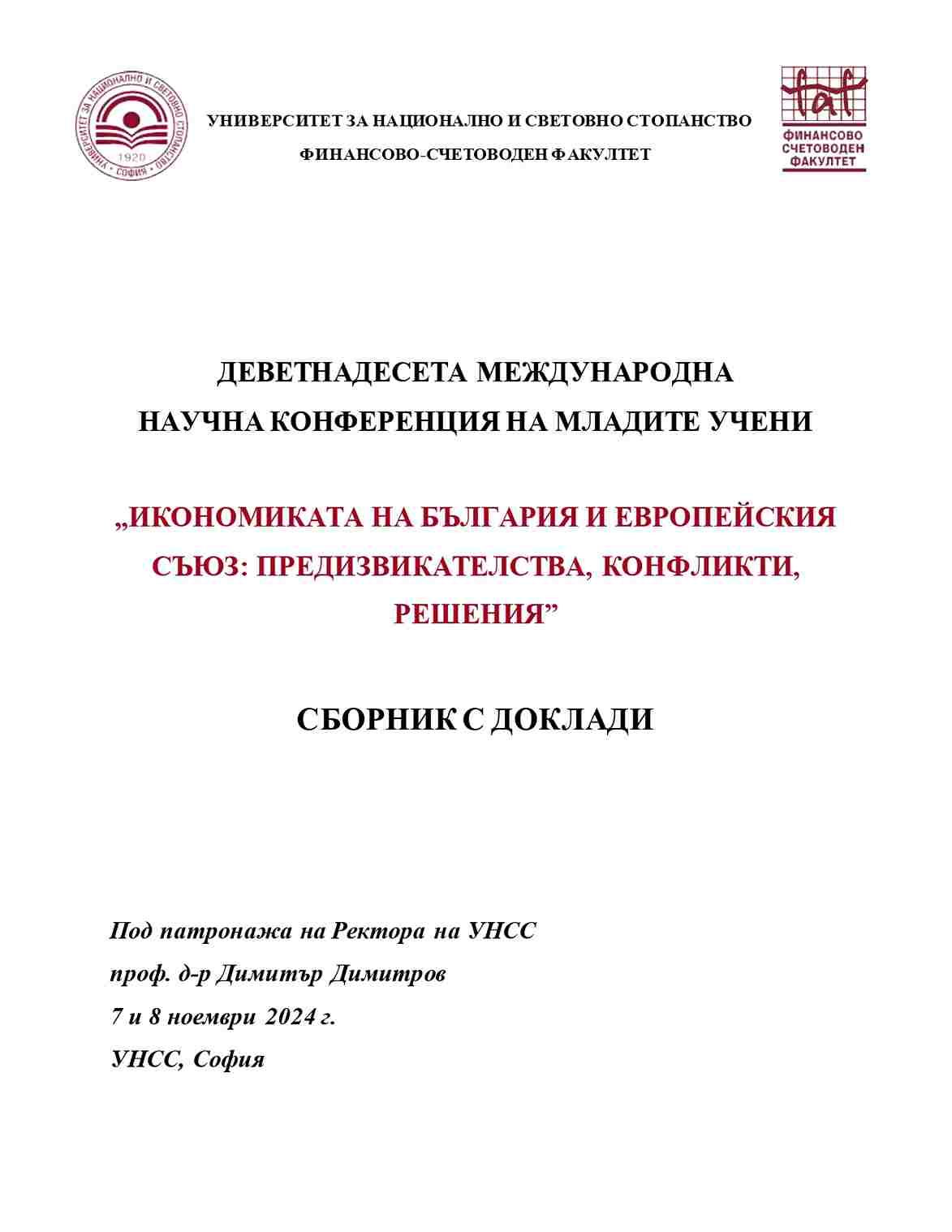Данъчният ефект от вдигането на праговете за задължителен независим финансов одит в България
Тhe Tax Еffect of Raising the Thresholds for Mandatory Independent Financial Audit in Bulgaria
Author(s): Monika Krivoshapkova
Subject(s): Politics / Political Sciences, Politics, Economy, National Economy, Business Economy / Management, Economic policy, Fiscal Politics / Budgeting
Published by: Университет за национално и световно стопанство (УНСС)
Keywords: financial audit; auditor; taxation
Summary/Abstract: The primary function of an independent financial audit is to protect the public interest and ensure the accurate and fair presentation of companies' financial statements. An integral part of the work of the certified public accountant—the registered auditor—also includes reviewing tax returns and the taxation of certain complex transactions. With the latest amendments to the Accounting Act, the legislature has decided to drastically narrow the scope of enterprises subject to mandatory independent financial audit, under the pretext of reducing financial pressure on small and medium-sized enterprises (SMEs) in Bulgaria. Considering that SMEs form the backbone of the Bulgarian economy, this change leaves a significant number of companies without the obligation to apply this form of oversight. This could lead to risks related to tax evasion or inaccurate financial reporting, potentially affecting state revenues and society at large. The article aims to examine the negative longterm implications of this change from the perspective of tax collection efficiency. Drawing on examples from other economies that have implemented similar changes, the article will explore potential solutions to address the adverse tax effects that this amendment may bring to society.
- Page Range: 520-526
- Page Count: 7
- Publication Year: 2025
- Language: Bulgarian
- Content File-PDF

